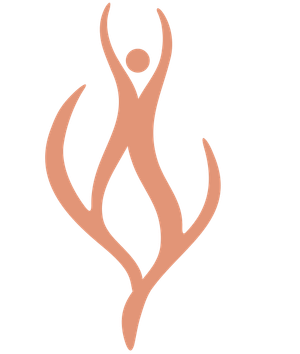Are you a woman over 40 who wants to maintain strong and healthy bones? As you age, your bones become more fragile and susceptible to fractures, making taking care of your bone health essential. Fortunately, there are many things you can do to improve your bone health and reduce your risk of osteoporosis.
Let’s go into the deeper end of the bone pool to see what can be done. One of the most important things you can do to maintain strong bones is to get enough calcium and vitamin D.
These nutrients are essential for bone health; many women over 40 do not get enough of them through their diet alone. You can increase your intake of calcium by eating more dairy products, leafy greens, and fortified foods. Vitamin D can be obtained through sunlight exposure, but many people also need to take supplements to reach the recommended daily intake.
Understanding Bone Health After 40

As women age, their risk of developing osteoporosis increases. Which is why it's important to take care of your bone health. To give a little knowledge of why this happens, it is due to a decrease in bone density, which can lead to fractures and other bone-related injuries.
Understanding bone health after 40 is crucial in maintaining a healthy and active lifestyle.
After menopause, women are at a higher risk for osteoporosis, a condition that weakens bones and makes them more prone to fractures. Understanding the factors that contribute to bone health can help you take steps to keep your bones strong and healthy.
Essential Nutrients for Bone Strength
As a woman over 40, it's important to prioritize your bone health to prevent osteoporosis and fractures. One way to do this is by ensuring you get enough of the essential nutrients supporting bone strength. Here are three key nutrients to focus on:
Calcium Intake and Sources
Calcium is crucial for building and maintaining strong bones. It's recommended that women over 40 get at least 1,000 milligrams of calcium per day, but you may need more if you're not getting enough from your diet or if you have other risk factors for osteoporosis. Some good sources of calcium include dairy products like milk, cheese, and yogurt, as well as leafy green vegetables like kale and broccoli. You can also find calcium-fortified foods like tofu, orange juice, and cereal.

Vitamin D and Its Importance
Vitamin D is necessary for your body to absorb calcium properly. Without enough vitamin D, your bones may not be able to use the calcium you're consuming, which can lead to weak bones and fractures. Most people find they can get enough vitamin D from sunlight exposure, but it can be difficult to get enough during the winter months or if you live in a northern climate. You can also get vitamin D from foods like fatty fish, egg yolks, and fortified milk.
Magnesium and Bone Structure
Magnesium is important for bone structure and helps regulate calcium levels in the body. It's recommended that women over 40 get at least 320 milligrams of magnesium per day. Some good sources of magnesium include nuts, seeds, whole grains, and leafy green vegetables. You can also find magnesium in supplements, but it's always best to get your nutrients from whole foods when possible. Focusing on these essential nutrients can help keep your bones strong and healthy as you age. Be sure to talk to your doctor about any concerns about your bone health and get personalized recommendations for your diet and lifestyle.

Lifestyle Changes for Optimal Bone Health
Incorporating weight-bearing exercises into your routine can help strengthen your bones and prevent bone loss. These exercises include activities that require your body to work against gravity, such as walking, jogging, dancing, and weightlifting. Aim for at least 30 minutes of weight-bearing exercise most days of the week.
Stress Management and Bone Health
We all go through it during our daily lives, but chronic stress can have detrimental effects on your overall health, including your bone health. High levels of stress can lead to increased cortisol levels, which can interfere with bone formation and increase the risk of fractures. Incorporating stress-reducing activities such as meditation, yoga, or deep breathing exercises can help promote bone health.
Making these lifestyle changes can help improve your bone health and reduce the risk of fractures and osteoporosis. Remember to always consult with your healthcare provider before starting any new exercise or making significant changes to your diet or lifestyle.
Medical Interventions and Screenings
Bone Density Tests are one of the most important medical interventions for women over 40 is bone density testing. This test measures the strength and density of your bones and can help identify if you have osteoporosis or are at risk for it. The test is painless and non-invasive and can be done in just a few minutes.
The National Osteoporosis Foundation recommends that all women over 65 get a bone density test and that women between the ages of 50 and 64 who have risk factors for osteoporosis also get tested. Why is it important? Some of the risk factors include a family history of osteoporosis, a small frame, and a history of fractures.
| Fact | Description |
|---|---|
| Prevalence of osteoporosis | 1 in 2 women over 50 will experience an osteoporosis-related fracture in their lifetime. |
| Benefits of early detection | Early diagnosis allows for early intervention, preventing fractures and improving quality of life. |
| Risk factors for osteoporosis | Sex (women 4x more likely than men), age, family history, body size, medical conditions, lifestyle factors |
| Cost of osteoporotic fractures | Estimated at $51 billion annually in the US |
| Impact on healthcare system | Most common bone disease in adults, placing a significant burden on healthcare systems |
Medications and Supplements

If you are diagnosed with osteoporosis, your doctor may recommend medications or supplements to help strengthen your bones. There are several different types of medications available, including bisphosphonates, hormone therapy, and calcitonin. Your doctor can help you determine which medication is right for you based on your individual needs and medical history.
In addition to medications, there are also several supplements that can help improve bone health. Calcium and vitamin D are essential for strong bones, and many women do not get enough of these nutrients through their diet alone. Your doctor may recommend supplements to help ensure that you are getting enough of these important nutrients.
Hormone Replacement Therapy Pros and Cons
Hormone replacement therapy (HRT) is another medical intervention that may be recommended for women over 40. HRT involves taking estrogen and/or progesterone to help alleviate symptoms of menopause and reduce the risk of osteoporosis.
While HRT can be effective for some women, it is not without risks. HRT has been linked to an increased risk of breast cancer, heart disease, and stroke. Your doctor can help you weigh the pros and cons of HRT based on your individual health history and risk factors.
In summary, medical interventions and screenings are important tools for maintaining bone health as you age. Bone density testing, medications and supplements, and hormone replacement therapy can all help reduce the risk of osteoporosis and improve bone strength.
Talk to your doctor about which interventions are right for you based on your health needs and risk factors.
Preventative Measures and Treatments
Falls are a major cause of fractures in older women, so it's important to take steps to prevent them. This can include simple measures such as removing tripping hazards in the home, wearing sturdy shoes with good grip, and using assistive devices such as handrails and grab bars. Regular exercise programs that focus on balance and strength can also help reduce the risk of falls.
I like to dig into numbers, I know I am weird like that, and I was shocked to discover how women are so much more at risk when it comes to falls.
Over 37 million falls are reported annually among older adults (65+). One in four older adults (25%) falls each year. Women fall more often than men, accounting for nearly two out of three falls.
Until Next, Stay Vibrant! Olivia. (and don't fall!)





